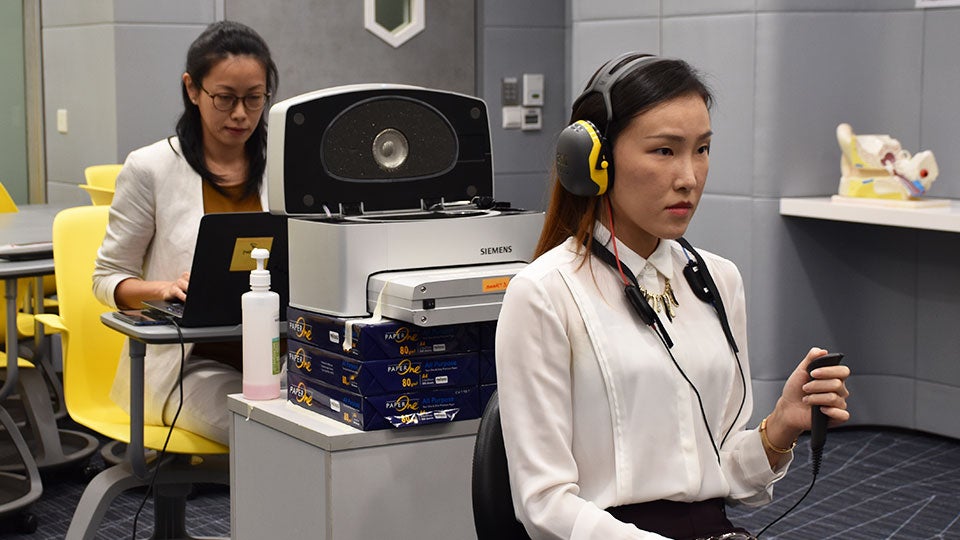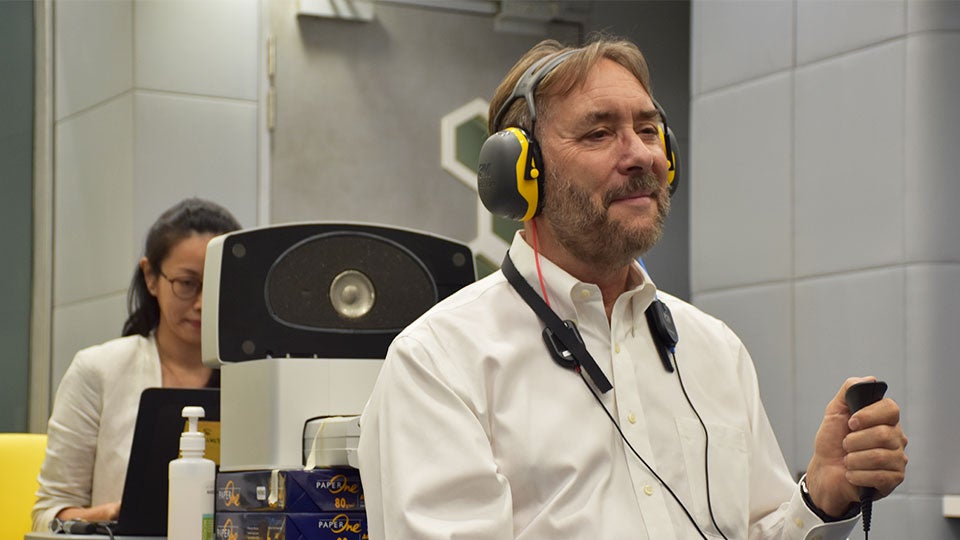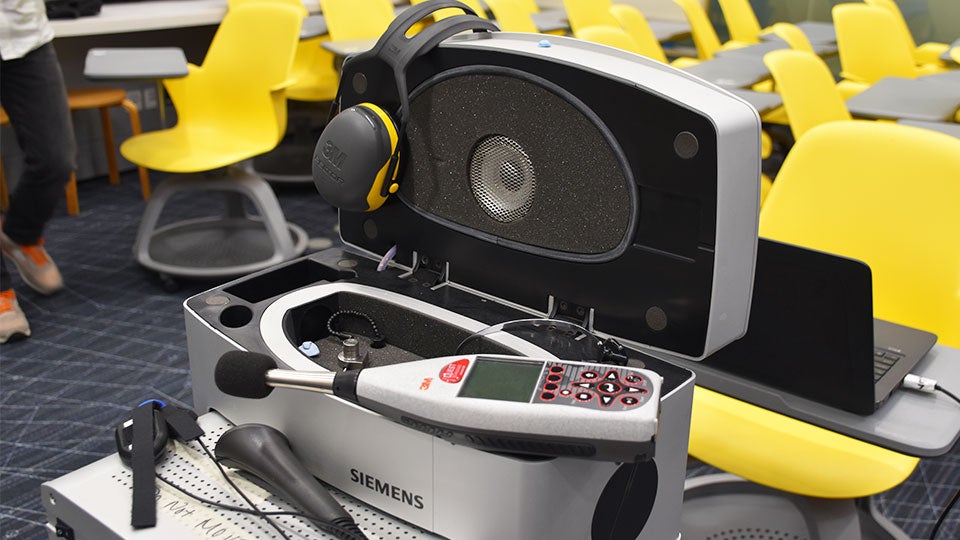Making hearing checks easy and accessible for seniors
Published: 23 Oct 2018

An NUS-led research initiative is under way to develop and trial accessible and cost-effective hearing services for the elderly in Singapore. It is part of a three-year project which seeks to address the increasing need for hearing care services of the growing elderly population.
Hearing loss currently affects as many as two-thirds of people in Singapore who are over 60 years of age. Loss of hearing has been linked to a reduced quality of life, cognitive impairment, depression, lowered income, social isolation and reduced independence. According to a study of the economic impact and cost of hearing loss in Singapore, in 2013 estimated the amount to be approximately $1.1 billion a year. Of this sum, about $1 billion was the amount of indirect costs, lost work income and lost tax revenues. This is projected to increase to $1.7 billion annually by 2030, when one out of four persons will be over the age of 65.
The scale of the problem notwithstanding, the 2010 Singapore National Health Survey found that only 3.3% of those with moderate to severe hearing loss used hearing aids. Costs and social factors were reasons people were reluctant to use the devices.
Additionally, a study of 3,795 patients who attended the NUH Mobile Hearing Clinic showed that 72% of them would not visit a hospital for hearing-related problems. Most of those unwilling to seek help for their hearing at a hospital either did not believe that they had a hearing problem (44%) or were unaware of the importance of having their hearing evaluated (24%).
That is why the key to the success of the research initiative is making available accurate, reliable, hearing screening services right where people live, said the leader of the project, Professor William Hal Martin, Director of the Master of Science (Audiology) Programme at the Department of Otolaryngology at the Yong Loo Lin School of Medicine, University of Singapore. “Seniors seeking help for their hearing face several obstacles. They must undertake multiple visits to one of the restructured hospitals and endure long waiting times for appointments. These can be several months long. This process can be very taxing on the seniors and their family members who assist them. Hearing testing in the current system requires expensive facilities at limited locations. We need to figure out how to move hearing services out into the community where seniors can easily access them.”
Prof Martin leads a collaboration of hearing experts from NUS, National University Hospital and the Singapore General Hospital. Work began in February 2018 and the project is developing innovative ways to develop and apply emerging technologies that will deliver hearing healthcare services in community-based facilities with easy access and shorter waiting times for seniors.
The project consists of two phases. The NUS hearing research team is currently doing lab based evaluations of hearing assessment equipment and protocols to determine what will or will not work in a community setting. The most challenging aspect of testing hearing is dealing with background noise at the test site, since background noise can cause errors in the hearing test results. The team is currently investigating ways of combining sound reduction technologies to permit accurate hearing testing in standard office settings.
In the second phase, implementation teams from the NUH and SGH will apply the new methods in community settings and evaluate their effectiveness and suitability for deployment across Singapore. If the new methods work, seniors will be able to access their hearing care needs as easily as they can go to a polyclinic.
A streamlined system of hearing evaluation that provide services including diagnostic and rehabilitative audiology to adults will be implemented. This would potentially serve as a new model of hearing healthcare for Singapore, providing fast and convenient access for seniors who require hearing services. “Our goal is to keep Singapore seniors healthy, productive and independent through the course of their lives. We know that healthy hearing is absolutely critical to making this a reality.
See press release.
News Coverage



